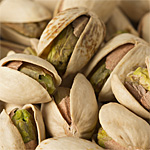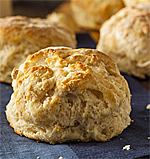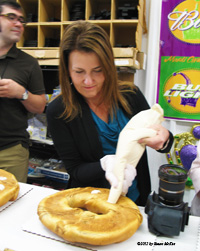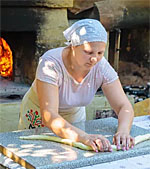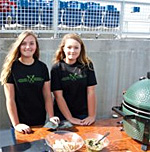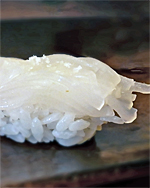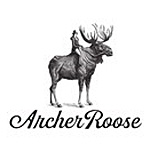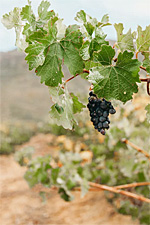200th Anniversary Oktoberfest in Munich
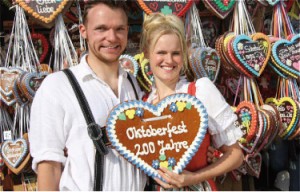
By Susan McKee
The Road Trips Foodie
Two hundred years ago the six days of festivities for the marriage of Bavarian Crown Prince Ludwig to Princess Therese von Sachsen-Hildburghausen were so extraordinary that the citizens of this region of southern Germany decided to repeat the celebration annually.
Although the original festivities were October 12-17, 1810, the Bavarians decided it was too cold by then. So, to take advantage of warmer weather, Oktoberfest always begins in September. This year’s celebration is September 17 through October 4, 2010, in Munich, Germany.
The locals fondly refer to Oktoberfest as “die Wiesn” because of its location: Theresienwiese. The huge meadow was named for the bride, Princess Therese.
Because it’s a special anniversary, there’ll be an historic reconstruction of the original festival using an antique tent plus an exhibition of historical fun fair attractions. Horse races, also part of the royal fête in 1810, will be held daily. The mayor of Munich conducts the official tapping of the first beer barrel at noon September 18. Once he has proclaimed “O’zapft is!”—confirming that the tapping was successful— those in the other tents can tap their kegs as well.
Needless to say, being on hand for the opening is very popular. Don’t expect to get a seat in any of the “big” tents if you get to Theresienwiese after 9 a.m. that day.
Admission to the Oktoberfest is free, but (of course) you pay for your beer. The festival tents open at 10 a.m. on weekdays and close at 11 p.m. On the weekends, the tents open at 9 a.m. and beer is served until 10:30 p.m.
Each of the 14 tents at Oktoberfest has its own personality. The Hippodrom, for example, attracts a young crowd to its sekt (sparkling wine) bar. Roast chicken, pork knuckle and sausages with sauerkraut are on the traditional menu at Armbrustschützenzelt. Fish are skewered and grilled in a 49-foot-long row at Fischer-Vroni.
But there’s a lot more to do than just drink beer and eat traditional Bavarian food. The event, which attracts almost six million visitors each year, is a lot like an American state fair, with roller coasters, midway rides and carnival attractions. Be sure to buy some Lebkuchenherzen to take home (you’ll see them in the photo). These oversize, heart-shaped and lavishly decorated gingerbread cookies are as much a part of Oktoberfest as the beer.
Construction of the beer tents begins in July—these aren’t small canvas-covered areas. The Schottenhamel tent, an Oktoberfest institution since 1857, seats 10,000.
To reserve a seat at any one of the tents during the festival, you need to contact the landlord directly. However, if you arrive no later than 2:30 p.m. on a weekday, alone or with a small group, you shouldn’t have any trouble. On the weekends, it’s best to go in the morning. Cost for a liter of beer is about 8€ —and you’ll need to be seated to order it.
In honor of the Oktoberfest’s 200th anniversary, the city of Munich is hosting an Oktoberfest exhibition at the City Museum of Munich that’s open now through the end of October. Visitors to the 1,500 square meter exhibit will see how the Oktoberfest grew from a traditional Bavarian festival to the biggest folk and beer festival in the world.
If you’d like to learn how Munich became the “Capital of Beer,” stop in at the Beer and Oktoberfest Museum. You’ll learn all about the history of the brew, the monasteries where it was perfected, the purity law and the unique characteristics of Bavarian beer. The whole history of the Oktoberfest is there, too.
(Photo courtesy of Corinna Born, Munich Airport)


